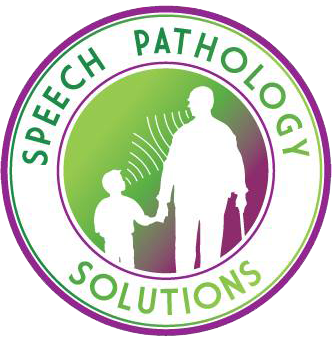Feeding disorders in infants can have a significant impact on a child’s ability to consume food properly. This can be a highly distressing situation for both the child and the parents. However, there are ways to correct these issues. Speech therapy, often associated with correcting speech issues, can also be instrumental in addressing feeding disorders in infants.
Understanding Feeding Disorders in Infants
Feeding disorders in infants encompass a range of issues that hinder an infant’s ability to eat or drink effectively. These disorders may include difficulty in latching onto a breast or bottle, trouble in swallowing, or an aversion to certain textures. These issues not only affect the infant’s nutrition but also their development and overall health.
Common Symptoms
Refusal to eat or drink: This is when an infant consistently shows reluctance or outright refusal to consume solids or liquids. This behavior might be exhibited by turning away from the bottle or spoon, or by becoming agitated during feeding times.
Difficulty in chewing or swallowing: Some infants may have trouble using their mouth and tongue to effectively chew food, or may struggle to swallow once the food is chewed. This can be due to weak muscles or coordination problems and is often marked by prolonged feeding times.
Gagging or coughing during meals: If an infant frequently gags or coughs during feeding, it can be an indication of difficulty in managing the food in their mouth. This could be due to sensitivities to food textures or challenges in coordinating the swallowing process.
Poor weight gain or growth: When an infant is not able to consume enough nutrients due to feeding difficulties, it can lead to poor weight gain or slowed growth. This can be a concerning sign that the infant is not getting the nutrition needed for proper development.
Being highly selective with food textures: Some infants might only accept foods of certain textures and reject others. For example, an infant might only eat pureed foods and refuse anything with a chunkier texture. This can be indicative of sensory sensitivities or oral motor challenges.
Causes of Feeding Disorders in Infants
Various factors can contribute to feeding disorders in infants. Some of the common causes include:
Oral Sensitivity: Infants may be sensitive to the texture or temperature of foods.
Medical Issues: Gastrointestinal issues or allergies can make feeding painful or uncomfortable for the infant.
Motor Skills: Infants may have difficulty coordinating the muscles needed for effective feeding.
Psychological Factors: Anxiety or past traumatic experiences associated with feeding can lead to feeding disorders.

The Role of Speech Therapy in Treating Feeding Disorders
Though it might not be obvious at first, Speech Language Pathologists are often well-equipped to help address feeding disorders in infants. This is because the mechanisms involved in feeding are closely related to those used in speech.
Evaluating the Issue
A Speech Language Pathologist begins by evaluating the infant to understand the underlying issues contributing to the feeding disorder. This involves observing the infant’s feeding practices, reviewing medical history, and assessing oral motor abilities.
Developing a Customized Plan
Once the evaluation is complete, the Speech Language Pathologist will develop a customized treatment plan. This may include exercises to strengthen the infant’s oral muscles, strategies to desensitize them to different textures, and education for parents on optimal feeding techniques.
Implementing the Plan
The Speech Language Pathologist will work closely with the infant and their family to implement the plan. This typically involves regular therapy sessions and home exercises. The therapist will also continuously monitor the infant’s progress and make necessary adjustments to the plan.
Educating the Family
Explaining the issue is a critical component of treatment. The Speech Language Pathologist will provide information and training to the parents on how to effectively feed their infant and how to recognize and address any issues that may arise.
The Long-Term Benefits
Speech therapy for addressing infant feeding disorders can yield long term benefits by ensuring adequate nutrition for healthy growth and development. Additionally, it can alleviate the stress and anxiety associated with mealtime, creating a more positive experience for the entire family.

Early Intervention Matters
If you’re concerned about your child’s eating habits, Speech Pathology Solutions is here for you and your family. With our comprehensive, family-centered approach, and a team of highly qualified and caring professionals, we are committed to guiding your child through their feeding challenges.
Our practice is renowned for utilizing evidence-based methods to address various speech and feeding disorders in infants. We understand how crucial early intervention is for the lifetime success of your little ones. Don’t hesitate; your child deserves the best start in life. Reach out to Speech Pathology Solutions today and take the first step toward nurturing your infant’s feeding skills and overall development.

